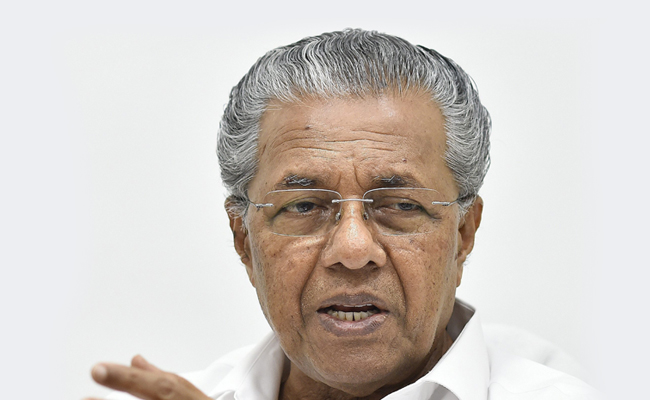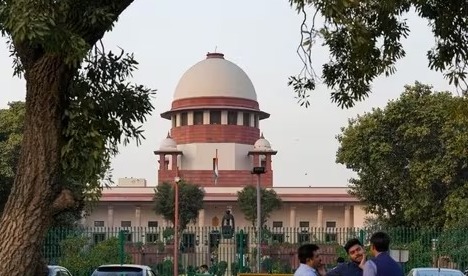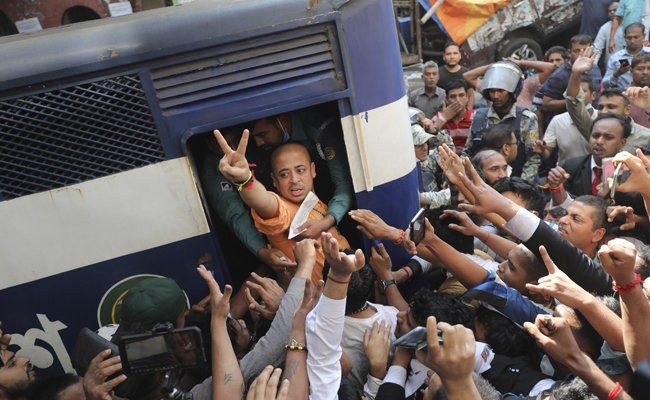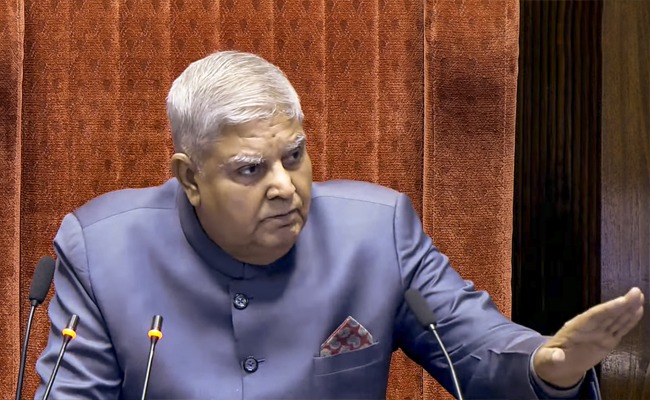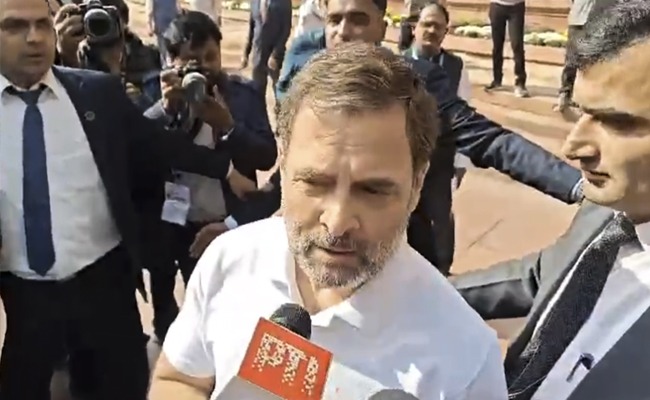Thiruvananthapuram: Kerala Chief Minister Pinarayi Vijayan expressed disappointment over the lack of special assistance from the central government following the devastating landslides in Wayanad. He stated that despite requesting an emergency relief fund of Rs 291 crore from the National Disaster Response Fund, only Rs 145.6 crore, which was previously sanctioned, has been provided. "This is a routine procedure and not specific disaster-related aid," Vijayan emphasised.
The Chief Minister highlighted that the state government is yet to receive any special support from the Centre. The matter was discussed in the recent Cabinet meeting, where it was decided to urge the central government once again to release the necessary aid promptly.
Vijayan also condemned the media for spreading what he termed as a "false narrative" that the Kerala government had inflated damage estimates to unfairly secure central assistance. He stated that this misinformation has discredited the state government and its relief efforts on a global scale.
"This is not just a case of false reporting or a lapse in media ethics. It is a deliberate attempt against the state and its people, aimed at eroding support for the relief fund. Such 'destructive journalism' is a crime against society and those responsible must recognize the gravity of their actions," the Chief Minister said.
The landslides in Wayanad, triggered by heavy rains, led to significant loss of life and property in Punjirimattom, Mundakkai, Chooralmala, and Vellarimala villages in Meppadi panchayat, Vythiri taluk, Wayanad district.
Let the Truth be known. If you read VB and like VB, please be a VB Supporter and Help us deliver the Truth to one and all.
New Delhi (PTI): In a significant verdict, the Supreme Court has said religious conversions undertaken solely to avail reservation benefits without genuine belief amounted to a "fraud on the Constitution".
Justices Pankaj Mithal and R Mahadevan passed the verdict on November 26 in a case filed by one C Selvarani and upheld a Madras High Court decision of January 24 denying a scheduled caste certificate to a woman who converted to Christianity but later claimed to be a Hindu to secure employment benefits.
Justice Mahadevan, who wrote the 21-page verdict for the bench, further underscored that one converted to a different religion, when they were genuinely inspired by its principles, tenets and spiritual thoughts.
"However, if the purpose of conversion is largely to derive the benefits of reservation but not with any actual belief in the other religion, the same cannot be permitted, as the extension of benefits of reservation to people with such ulterior motives will only defeat the social ethos of the policy of reservation,” he noted.
The evidence presented before the bench was found to have clearly demonstrated that the appellant professed Christianity and actively practiced the faith by attending church regularly.
"Despite the same, she claims to be a Hindu and seeks for a SC community certificate for the purpose of employment," it noted.
"Such a dual claim made by her," said the bench "was untenable and she cannot continue to identify herself as a Hindu after baptism".
The top court, therefore, held the conferment of scheduled caste communal status to the woman, who was a Christian by faith, but claimed to be still embracing Hinduism only for the purpose of availing reservation in employment, "would go against the very object of reservation and would amount to fraud on the Constitution".
The top court underlined a religious conversion solely to access reservation benefits, without genuine belief in the adopted religion, undermined the fundamental social objectives of the quota policy and her actions were contrary to the spirit of reservation policies aimed at uplifting the marginalised communities.
Selvarani, born to a Hindu father and a Christian mother, was baptised as a Christian shortly after birth but later claimed to be a Hindu and sought an SC certificate to apply for an upper division clerk position in Puducherry in 2015.
While her father belonged to the Valluvan caste, categorised under scheduled castes, he had converted to Christianity, as confirmed by documentary evidence.
The verdict said the appellant continued to practice Christianity, as seen by the regular church attendance, making her claim of being a Hindu untenable.
The bench noted individuals converting to Christianity lose their caste identity and must provide compelling evidence of reconversion and acceptance by their original caste to claim SC benefits.
The judgement said there was no substantial evidence of the appellant's reconversion to Hinduism or acceptance by the Valluvan caste.
Her claims lacked public declarations, ceremonies, or credible documentation to substantiate her assertions, it pointed out.
"One converts to a different religion when genuinely inspired by its principles. Conversion purely for reservation benefits, devoid of belief, is impermissible," the bench held.
The apex court opined in any case, upon conversion to Christianity, one lost their caste and couldn't be identified by it.
"As the factum of reconversion is disputed, there must be more than a mere claim. The conversion had not happened by any ceremony or through 'Arya Samaj'. No public declaration was effected. There is nothing on record to show that she or her family has reconverted to Hinduism and on the contrary, there is a factual finding that the appellant still professes Christianity,” it noted.
The bench said there was evidence against the appellant, and therefore, her contention raised that the caste would be under eclipse upon conversion and resumption of the caste upon reconversion, was "unsustainable".

